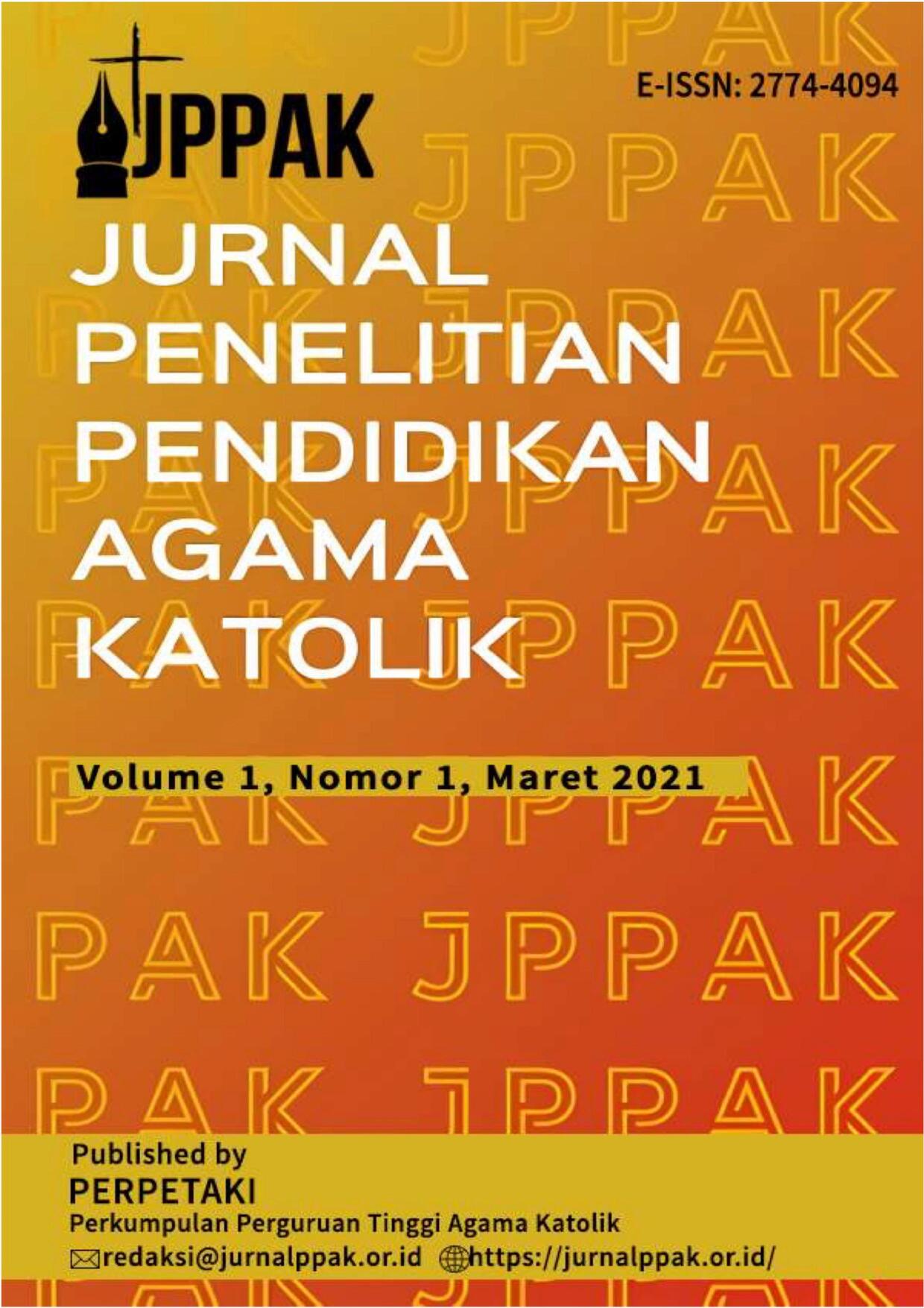An Effort to Improve Performance and Competency of the Catholic Religion Teacher in Papua
DOI:
https://doi.org/10.52110/jppak.v1i1.8Abstract
The purpose of this study was to determine the effect of recruitment and awareness of vocations as Catholic religious education teachers on teacher performance in schools with competence as an mediation variable. Primary data was collected through questionnaires to 51 Catholic religious education teachers in the archdiocese of Merauke. Five hypotheses were tested by multiple linear regression analysis. The results of the study showed that five hypotheses proved significant. This finding indicates that the highest percentage of variables that influence directly or indirectly on teacher performance in schools is competence. Recruitment and awareness of the special vocation as a Catholic religion teacher also had a positive effect on performance but with a lower percentage. This indicates that competence plays a dominant role in improving the performance of Catholic religious education teacher in schools. These findings also serve as input for school administrators to apply the procedures for recruitment and selection of candidates of Catholic religious education teachers according to what is regulated in the Code of Canon Law 1983.The recruitment process is quite specific, providing enormous opportunities for obtaining Catholic religious education teachers who really aware of the special vocation and have sufficient competence. Existing aspects will affect the performance as a teacher when actively involved in teaching and educating children in school.
Downloads
##submission.downloads##
Submitted
Accepted
Published
How to Cite
Issue
Section
License
Copyright (c) 2021 Jurnal Penelitian Pendidikan Agama Katolik

This work is licensed under a Creative Commons Attribution 4.0 International License.
Copyright Notice and Permissions
Jurnal Penelitian Pendidikan Agama Katolik offers immediate open access to all its content on the principle to make researches freely available to the public, especially to the scholars, to support greater global exchanges of knowledge. This journal encourages all scholarly authors to allow their research openly available, free access and without time restrictions.
All articles published Open Access will be immediately and permanently free for everyone to read and download. Under the CC BY-SA 4.0 license, authors retain ownership of the copyright for their article, however authors grant others permission to use the content of publications in Jurnal Penelitian Pendidikan Agama Katolik (JPPAK) in whole or in part provided that the original work is properly cited. Users (redistributors) of Jurnal Penelitian Pendidikan Agama Katolik (JPPAK) are required to cite the original source by including at least: the full title of the article, the author's or authors' full name(s), JPPAK as the initial source of publication, year of publication and volume number using a propriate citing method.
Copyright encompasses exclusive rights to reproduce and deliver the article in all form and media, including reprints, photographs, microfilms and any other similar reproductions, as well as translations. The reproduction of any part of this journal, its storage in databases and its transmission by any form or media, such as electronic, electrostatic and mechanical copies, photocopies, recordings, magnetic media is prohibited without consent of Jurnal Penelitian Pendidikan Agama Katolik (JPPAK).
Jurnal Penelitian Pendidikan Agama Katolik (JPPAK) is licensed under a Creative Commons Attribution Share-Alike 4.0 International. (CC BY-SA 4.0)
Authors who publish with Jurnal Penelitian Pendidikan Agama Katolik (JPPAK) agree to the following terms:
- Authors retain copyright and grant the journal right of first publication with the work simultaneously licensed under a Creative Commons Attribution Share-Alike 4.0 International (CC BY-SA 4.0) license that allows others to share the work with an acknowledgement of the work's authorship and initial publication in this journal.
- Authors are able to enter into separate, additional contractual arrangements for the non-exclusive distribution of the journal's published version of the work (e.g., post it to an institutional repository or publish it in a book), with an acknowledgement of its initial publication in this journal.
- Authors are permitted and encouraged to post their work online (e.g., in institutional repositories or on their website) after the publication on JPPAK, as long as it not published on other OJS for it will be treated as plagiarism by plagiarism checker apps. It can lead to productive exchanges, as well as earlier and greater citation of published work (See The Effect of Open Access).












